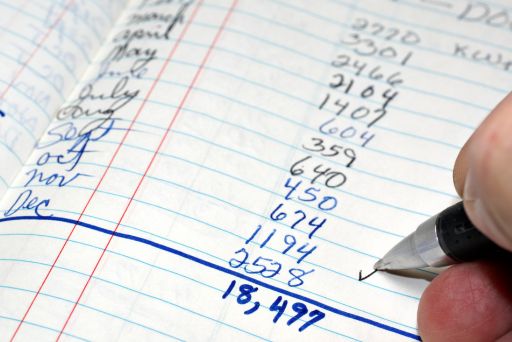
Keeping business records for tax purposes can be completely overwhelming, but it’s critical in order to keep your business safe if you’re ever audited. The most overwhelming part of keeping business records is knowing what records are important. We’ll go through the Internal Revenue Service’s (IRS) recommendations on what to keep and how long to keep it.
What Kind of Business Records Should You Keep?
First, we need to identify what business records are important to keep. You should keep records showing your income and expenses, as well as any proof of tax deductions you plan to take. The IRS has a few recommendations on what to keep.
Income Records
Proving income is pretty straightforward. You’ll want to keep records so that you can accurately pay your taxes.
Income records include:
- Cash register tapes
- Receipt books
- Invoices
- Deposit information (cash and credit sales)
Expense Records
Keeping records of your expenses is an important part of bookkeeping so that you can take deductions and lower your taxable income.
You’ll want to keep records (such as receipts or invoices) showing the following expenses:
- Loss of income (cancelled checks, unpaid invoices)
- Travel
- Business meals
- Transportation
- Gifts
Asset Records
If you plan on deducting any of your assets you’ll also want to keep records on them. Business assets range from office furniture to equipment and even property. You’ll have to calculate the depreciation of each asset and the gains of any asset sold. In order to do that you’ll want to keep records on the following:
- When and how you acquired the asset
- Purchase price
- Cost of any improvements
- Deductions taken for depreciation
- How you used the asset
- When and how you disposed of an asset
- Selling price of asset
- Expenses associated with the sale of assets

How Long to Keep Business Records
In most cases the IRS recommends you keep your business records for a minimum of three years.
The IRS requires that you keep records for three years after the due date of the tax return or the date you filed the tax return, whichever is later. The period of limitations to file an amendment is three years; however the IRS can audit you up to six years later. After that you are no longer required to have your tax return or documentation.
Even if these tax deadline pass, make sure that your insurance company or creditors don’t require you to keep these records longer.
Download our FREE guide: What Business Records You Should Keep for Tax Purposes and keep it at your desk as a reminder.
Frequently Asked Questions
1. What types of business records should I keep for tax purposes?
You should keep records that show your income, expenses, and any proof of tax deductions you plan to take. Specifically, you should keep income records like cash register tapes, receipt books, invoices, and deposit information. For expenses, keep receipts or invoices related to loss of income, travel, business meals, transportation, and gifts. Additionally, maintain records for any business assets, including details on purchase price, depreciation, and the sale of assets.
2. How long do I need to keep my business records?
The IRS recommends keeping your business records for at least three years. Specifically, you should retain records for three years after the due date of the tax return or the date you filed the tax return, whichever is later. While the IRS can audit you up to six years after filing, it’s generally safe to discard records after this period, unless your insurance company or creditors require you to keep them longer.
3. Why is it important to keep records of my business assets?
Keeping records of your business assets is crucial if you plan to deduct their depreciation or if you sell them. You’ll need to document when and how you acquired the asset, the purchase price, any improvements made, deductions for depreciation, how the asset was used, and details about its sale. Accurate records ensure you can correctly calculate depreciation and report any gains from sales.
4. What should I do if I’ve lost a record that the IRS might require?
If you’ve lost a record, it’s essential to try to reconstruct it. Contact the source of the document (such as the vendor or bank) to obtain a duplicate. If that’s not possible, you should create a record of the event or transaction as accurately as possible, noting the date, amount, and purpose, and explain why the original record was lost.
5. Can the IRS audit me after the three-year record retention period?
Yes, while the IRS typically audits within three years, they can extend this period to six years if they identify a significant error in your tax return, such as underreporting income by more than 25%. Therefore, it’s advisable to keep records for at least six years to be fully prepared for any potential audit.


